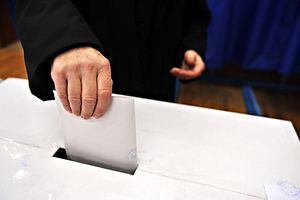In December 2011, residents of the Chinese village of Wukan staged a mini-rebellion, driving their local leaders away from the village and blockading roads to prevent police from entering the town. The villagers, irate about the unauthorized sale of village land for commercial use, attracted worldwide media coverage. When then-provincial party chief Wang Yang chose to mediate the conflict rather than sending in security forces, many media outlets hailed it as a victory for democratic forces in China. Wang responded to the villagers’ demands by promising free elections, as well as an investigation into the land sales that sparked the protests.
At the time, however, David Cohen argued in The Diplomat that the Wukan outcome didn’t reveal a new acceptance of protests, but rather showed that local protests were of little concern to the central government. Cohen noted that the protestors themselves actually appealed to the Communist Party to help them, making the Wukan protests a rather extreme example of China’s petitioning system rather than an actual revolt. In fact, some of the leaders Wukan residents were revolting against had themselves been elected to their posts. In the end, the Wukan protest was less about freedom to choose one’s leaders, and more about a demand for responsible, clean governance. The push for a new election in Wukan was a means to an end.
However, the new elections don’t seem to have changed much within Wukan. A documentary by Al Jazeera, called Wukan: After the Uprising, outlined how quickly people soured on their new leadership, which proved unable to restore much of the village’s land. Some of Wukan’s new leaders resigned in frustration. Others (including deputy chiefs Hong Ruichao and Yang Semao) would themselves be accused of corruption, although their supporters believe this is merely political retribution for their role in the 2011 protests. Last summer, Stanley Lubman wrote for the Wall Street Journal that “Wukan is frustrated and fractured, and most of the disputed land transactions haven’t been reversed.”
Wukan’s latest election, held on March 31, did little to dispel this disillusionment. One voter told the New York Times, “There’s a lot less enthusiasm this time around … We still haven’t gotten our land back. The municipal and township governments are corrupt, and they don’t want to help us solve this problem.” Xinhua, in its coverage of the Wukan elections, used the title “Shamed Wukan seeks new leaders.” The article quoted village chief Lin Zuluan, , one of the original protestors who was re-elected to lead Wukan in Monday’s poll, as saying, “This village committee was elected by the villagers themselves, but already some of the committee repeated the mistakes of the previous committee, less than a year later. This requires our introspection.”
The situation in Wukan shows the fundamental challenge for China’s local village elections: they are democratic movements that function outside a democratic system. Many local elections lack oversight, opening the door for vote-buying scandals or otherwise rigged elections. Furthermore, even assuming a clean and competitive election, village officials must work closely with senior non-elected party officials to actually provide effective governance. Without approval from these party officials, local village leaders won’t be able to raise funds to effectively provide social services for their constituents. Elected village leaders, then, are ultimately constrained by non-elected officials, making democracy at the grassroots level all but meaningless.
As a sign of this, village chief Lin Zuluan has pledged to “reinforce the party’s rule,” saying “Wukan village has to face the reality” of the CCP system in order to govern effectively. Part of embracing party rule apparently involves letting the former Wukan officials (those chased out of the village in 2011) back into the fold. Xue Jianwan, whose father died in police custody after he was sent to negotiate with government officials, was dismayed by this development. “The greedy officials in the old village committee were the people we rioted against. And, if we let them return … What was the meaning of our demonstrations at that time?” she told South China Morning Post.

































